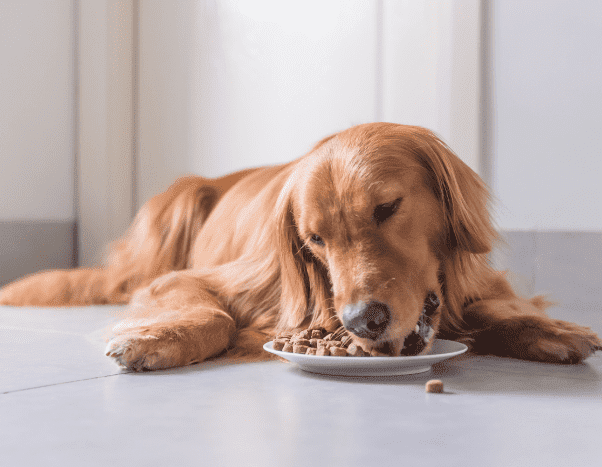Choosing the right food for your dog is really important.
Dogs love a tasty treat and are often not fussy about what they eat.
In fact, some breeds are renowned for their opportunistic outlook on filling their tums (sound familiar to Beagle owners?), a trait which, when combined with a more sedentary, domesticated lifestyle that many canines now live, can lead to health challenges. Therefore, a good diet and nutrition are essential for healthy, happy doggy lives!
Dietary requirements are also a differential between the world’s two favourite pet species.
While cats are “obligate carnivores” that need a meat-based diet to survive, dogs are more omnivorous and can take nutrients from a wider variety of foods and so are more likely to give anything a try, which is why knowing what dogs should and should not eat is so important.
Guidelines for a good doggy diet
- Your dog will benefit most from a diet that is appropriate (both in food and portion size) to their age, gender and size with consideration also for whether your dog is neutered and their activity level.
- There are some breed specific diets available – speak to your vet about the benefits of these in relation to your dog’s breed.
- A good quality kibble can provide everything your dog needs; however, mixing it up with a quality wet food is very acceptable (especially if your dog enjoys it).
- Healthy treats are great, but in moderation and as part of the overall diet.
- Hydration is a crucial part of any diet, and your dog should always have access to fresh, clean drinking water.
- Avoid changing your dogs’ diet suddenly and without good reason; dogs do not need variety in their diets (unlike the human expectation of eating, if a dog has a food they enjoy, they will happily eat the same thing every day) and sudden dietary changes can cause tummy troubles – Talking of which…. Please be aware that some foods can be very harmful or even fatal to dogs.
Avoid these food
- Chocolate, the darker the chocolate the more dangerous for dogs!
- Onions, garlic, leeks and chives
- Avocado
- Macadamia Nuts
- Artificial sweeteners
- Grapes and raisins
- Cinnamon
- Cooked bones
Dogs eating these can experience anything from vomiting and diarrhea to internal injuries and even fatal toxicity.
Very importantly, any change in your dog’s eating (and drinking) habits should always be monitored and, if in any doubt, please seek veterinary advice!
Providing your pet with a good balanced diet supports positive health and wellbeing, and, for some illnesses and conditions, prescription diets will be used as part of a treatment plan. So always speak to your vet for recommendations and advice to best meet your pet’s dietary needs!
Dr. Katrin is the founder of the German Veterinary Clinic. Her passion and commitment to delivering the highest standards of animal care as well as her extensive knowledge and experience has enabled the clinic to expand and flourish.
Dr Katrin is currently a resident in Veterinary Behaviour Medicine of both the European as well as American College of Animal Welfare and Behaviour Medicine and is the first (and only) veterinarian in the Middle East to specialize in this field. This means that GVC is the only clinic that can treat the mental, emotional and physical health of all our pet-patients.




